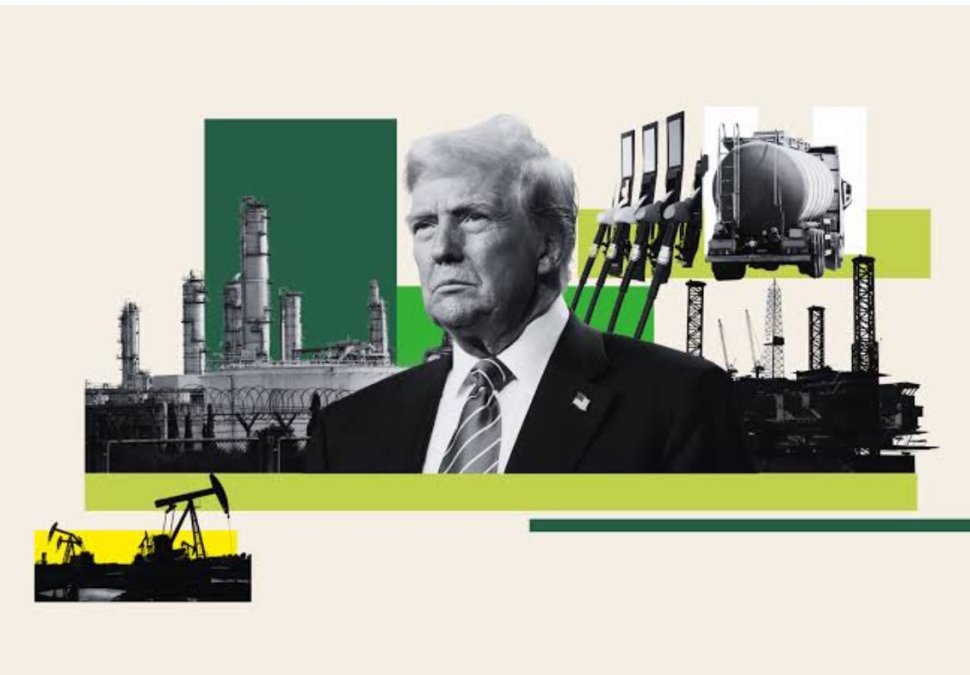Trump, China, and Iran’s Shadow Fleet
Trump, China, and Iran’s Shadow Fleet
In the first sanctioning action of Donald Trump’s new administration, the United States has imposed sanctions on a network of individuals and companies accused of facilitating the sale of millions of barrels of Iranian oil to China. Donald Trump is trying to bring the export of crude oil from the Islamic Republic of Iran to zero.
The new round of sanctions is considered the first warning action against Beijing and Tehran, designed to target China without halting informal negotiations to explore the possibility of an agreement with the Iranian government to limit its nuclear program. Analysts say these sanctions, which target individuals and ships associated with Iran’s shadow fleet for transporting sanctioned oil, could be effective but cannot bring Iran’s oil exports to zero.
To achieve this goal, more stringent measures are needed, such as sanctioning Chinese institutions, including banks that process oil transactions. However, such an action could escalate tensions between the world’s two top economies. Tom Keatinge, director of the Centre for Financial Crime and Security Studies at the Royal United Services Institute (RUSI) in London, says this is only an initial action, not because Trump necessarily intends to act cautiously, but as a way to send a warning message to all those involved in transporting Iranian oil. Why has Trump targeted Iran?
Iran’s economy is heavily dependent on oil revenues, and at the same time, the U.S. State Department says the Islamic Republic uses its oil revenues to fund terrorist groups and its proxies in the region. The new U.S. sanctions target more than 12 individuals and companies in China, India, and the United Arab Emirates, including Iranian and Indian citizens, ship crew management companies, and several oil tankers.
Nader Itayim, a Middle East energy expert at Argus Media based in the UK, says these sanctions, and those likely to follow, will certainly have an impact, but the main question is how significant that impact will be. Ultimately, it depends on how serious the Trump administration is about countering Iran’s oil trade.
The nuclear agreement known as JCPOA in 2015 lifted U.S. sanctions and allowed Iran to sell oil, but Trump withdrew from this agreement in 2018 and imposed sanctions that reduced Iran’s oil exports to about 400,000 barrels per day. The Islamic Republic later increased its oil sales by circumventing sanctions, rising Chinese demand, and reduced U.S. oversight during Joe Biden’s presidency. The new sanctions are part of Trump’s return to the maximum pressure campaign, which was his main policy against Iran during his first presidency. Trump claims that Iran is too close to building a bomb, but Tehran has always insisted that its nuclear program is peaceful.
Tom Keatinge says one of Trump’s goals now is to bankrupt Iran. Since Trump was president, the sanctions community, both in the public and private sectors, has learned a lot about targeting a country’s oil revenues and broader infrastructure, mainly through the experience gained with Russia’s shadow fleet.
How does the shadow fleet work?
To circumvent sanctions and secretly transfer its oil to China and other countries, Iran uses a shadow fleet or ghost fleet of tankers. This strategy includes ship-to-ship transfers, using intermediaries, conducting hidden financial transactions, and rebranding the oil to hide its Iranian origin and disguise it as oil from another country. These methods have allowed the Iranian government to continue exporting oil and generating revenue despite sanctions.
According to data from United Against Nuclear Iran, a non-governmental group opposing the Islamic Republic’s nuclear program, Iran exported about 587 million barrels of oil in 2024, with 91% going to China. Based on data from the research company Kpler, China officially stopped buying oil from Iran in 2022 to avoid U.S. sanctions. However, billions of dollars of sanctioned Iranian oil have still reached China through the shadow fleet network.
What is Trump’s next step?
American officials have been trying to pressure China and other countries to refrain from participating in these transactions and impose sanctions on tankers involved in transporting Iranian oil. The latest round of sanctions targets tankers and transportation companies related to Iranian oil exports.
Tom Keatinge, director of the Centre for Financial Crime and Security Studies in London, says these sanctions represent the development of a method the United States and its allies have used in recent years against Russian oil-carrying ships. He believes that sanctioning actions could extend beyond oil-carrying ships to target other infrastructures of Iran’s shadow fleet, such as companies providing insurance for these ships, agencies recruiting ship crews, ports accepting these ships, and diplomatic pressure on countries registering these tankers. Nader Itayim believes that such actions may scare off more risk-averse Chinese buyers but will have limited impact on reducing Iran’s oil exports.
He says more pressure on the ports of buyers and Chinese intermediaries, including the country’s banks, will be necessary to further reduce Iran’s oil exports. However, such an action could make Washington-Beijing relations more strained, which have recently been tense with the imposition of new tariffs. Keatinge says that reducing Iran’s oil exports could be part of broader negotiations between Trump and Chinese President Xi Jinping. He adds that China is the biggest challenge in limiting Iran’s oil, but does Trump really want a sanctions war with Xi?

